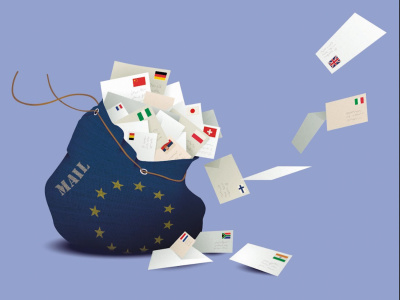
Thematic Evaluation of European Commission Support to Conflict Prevention and Peace-building
Within the global context of an increased international acknowledgement of the importance of CPPB, the Commission has significantly increased its focus on CPPB between 2001 and 2010, by increasing its financial support to CPPB from €120m in 2001 to around €1bn per year from 2004. Furthermore, the EU considerably strengthened its policy framework in the field of CPPB and developed a wide range of financial and non financial instruments to intervene in conflict affected countries, ranging from “classic” long term geographical assistance, to specific short term instruments and a wide range of non-financial instruments such as political dialogue, high level mediation and deployment of EU observers.
The report analyses to what extend the 'integrated approach' has contributed to objectives set.
Subject of the evaluation
This evaluation assesses European Commission support to CPPB, as defined by the 2001 Commission Communication on Conflict Prevention (COM(2001)21) and subsequent documents. It covers all support provided during the period 2001 -2010 and in all relevant regions where Commission support is implemented. It concerns a total of €7.7bn of funds contracted by the European Commission over the period covered.
Purpose
The evaluation does provide an overall independent assessment and identifies key lessons.
Methodology
The methodology followed a four-phase approach consisting of structuring, desk, field and synthesis phases. The evaluation was structured around eight country case studies: Bolivia, Central African Republic, Georgia, Ivory Coast, the Kyrgyz Republic, Sierra Leone, Timor -Leste and West Bank and Gaza Strip. Focused country visits were conducted in the first and in the latter three. The evaluation used a combination of tools and techniques for data collection including the analysis of around 200 documents, 180 interviews with 230 informants, peer institutions, civil society, national authorities and other stakeholders in the field. Other data was collected through: a survey of EUDs (complemented by telephone interviews), a systematic review of 36 CSPs or RSPs and a meta -analysis of 12 evaluation reports.
Main conclusions:
1) Since 2001, the Commission has operated a substantial shift towards support to CPPB, but there is a gap between the Commission’s policy commitments and the actual implementation.
2) Conceptual orientations at policy level have generally not been appropriated at operational level and were not always univocal and shared at strategic level.
3) The support of the Commission often remained in a developmental perspective rather than operating a shift towards a genuine CPPB perspective with a clear and prioritised strategy.
4) The conflict (-prone) or post-conflict context challenged the relevance of the alignment of Commission support on the strategies and policies of national authorities:
National development strategies did not always exist ;
It was not always clear with whom to align;
The national authorities were sometimes a major party to the conflict;
5) The Commission provided value added that differentiated it from most other actors:
- Stronger neutrality;
- Reliability (continued presence);
- Critical mass in terms of financial support;
- Ability to draw on a wide array of instruments;
- Long-term thematic experience in fields or sectors potentially impacting on CPPB; Credibility in terms of promoting democracy, peace and human rights.

